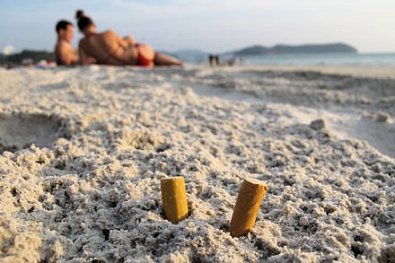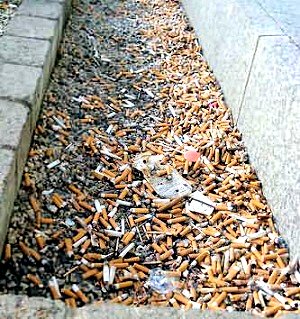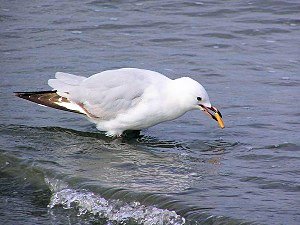By Bill Britton, Contributing Editor*
THERE ARE ALMOST 30 MILES OF BEACHES in Vero Beach and Indian River County serving both residents and visitors. Tourism alone pumps about $300 million annually into the local economy. For the Treasure Coast to remain both a recreational and economic asset, appearance means a lot. For smokers, that means thinking twice before flicking a cigarette butt from a car window, into the gutter, or onto the sand.
Incredibly, there are over 176 thousand pounds of cigarette butts discarded in the United States each year (http://www.beachapedia.org). Cigarette butts account for an extraordinary amount of waste. An estimated 845 thousand tons of cigarette butts accumulate as litter in lakes, in oceans, on beaches, and on the rest of the planet annually (http://www.tobaccofreeflorida.com).
In their 2009 report, the Ocean Conservancy, a group that monitors marine pollution, found that cigarette materials constituted 28% of the total amount of debris collected in their 2008 international coastal cleanup. This was more than twice the amount of any of the other 43 debris items listed in the report (http://www.ash.org). A cigarette butt dropped to the ground seems insignificant. But many are carried off by rain into storm drains and eventually to streams, estuaries, and the ocean; 32% of litter at storm drains consists of tobacco products.
Cigarette filters are made from cellulose acetate, a type of plastic that can take up to 25 years to decompose. Over this period, filters can disintegrate into microfibers that are harmful to marine life. Each unburned cigarette contains more than 3,900 chemicals, including nicotine, cyanide, ammonia, cadmium, acetone, and arsenic. Cigarette butts contain the toxic residue of these chemicals. Cigarette butt litter also poses a hazard to animals and marine life when they mistake filters for food (http://preventcigarettelitter.org). The estimated 4.5 trillion cigarette ends discarded across the world each year are believed to kill millions of birds, fish, and other animals and are sometimes eaten by young children.
In 2015, the non-profit Keep America Beautiful chose Keep Indian River Beautiful, Inc. as one of 73 organizations nationally to share $275 thousand in grant money as part of its Cigarette Litter Prevention Program. During 2013, participating communities saw a 48% reduction of cigarette litter. So, smokers, help the program along by thinking before flicking.
* Bill Britton is a freelance writer for John Hopkins University and a background writer for a McKinsey partner who writes for Foreign Affairs.


